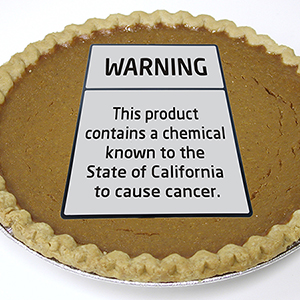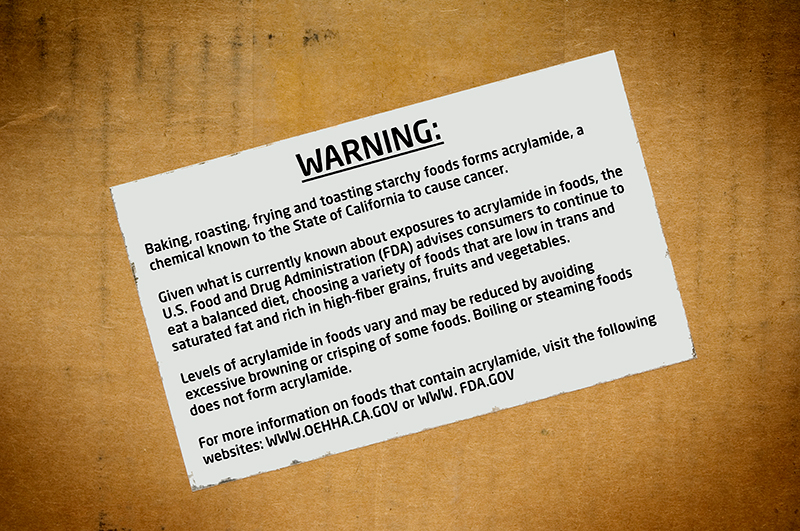Proposition 65 vs. Processed Food Companies - A New (Costly) Thorn in Your Side

20 Jun 2017
The addition of furfuryl alcohol, a natural by-product of thermal food processing, to the Proposition 65 list will likely result in added litigation risks for food/beverage manufacturers selling products in California.
On September 30th, 2016, the Office of Environmental Health Hazard Assessment (OEHHA) added furfuryl alcohol (FFA) to the California Proposition 65 ("Prop 65") list of chemicals as a known carcinogen. That means on September 30th, 2017 (in a few short months), the chemical's 1-year grace-period will end and companies that sell products in California will need to determine whether this will result in consumer exposure to FFA in sufficient quantities to trigger the need for a Prop 65 product warning.
Which would look like this:

The issue with this chemical for food companies is that, although it is used as a solvent and chemical precursor, it is also produced from furan formation during the thermal processing of food via the "Maillard reaction" (simplified – it is the browning or caramelization effect that introduces complex flavors). FFA is found in a wide range of foods, including bread, cooked meat, coffee, milk, beer, wine, and other alcoholic beverages (refs). This could have serious implications for food and beverage companies selling products in California, and is similar to the issues that occurred with acrylamide, which is another chemical produced through this Maillard reaction.
If the past is any indication, FFA could certainly be a red-flag target for bounty hunters. For example, to date, 157 notices of violation (NOVs) for acrylamide have been submitted to the Attorney General's (AG) office for alleged violations. This includes several high-profile lawsuits that were brought forth by the AG itself against several global food manufacturers and restaurants, who agreed to pay large civil penalties (hundreds of thousands of dollars or more) for not providing Prop 65 warnings on their products or at their food service locations.
One additional issue is that FFA currently does not have a published Safe Harbor Level, which means that companies will need to derive their own, at least until one is established by the OEHHA. As an alternative, companies may be able to provide warnings on their products/facilities similar to the warnings used for acrylamide:

Consequently, proactivity is essential! Food and beverage companies should be very clear on how much FFA may be present in their products and act accordingly BEFORE being targeted – the bounty hunters will certainly be waiting for this opportunity.
To help you be proactive, Intertek has laboratories that have state-of-the-art capabilities to test food products for FFA and with our scientific and regulatory professionals, we can help you understand and mitigate your litigation risks related to FFA Prop 65 compliance. Contact us today with any questions.
Are you concerned with the presence of furfuryl alcohol in your foods or beverages for sale in California?
Blogger:
Tom Jonaitis,
Scientific and Regulatory Associate, Intertek